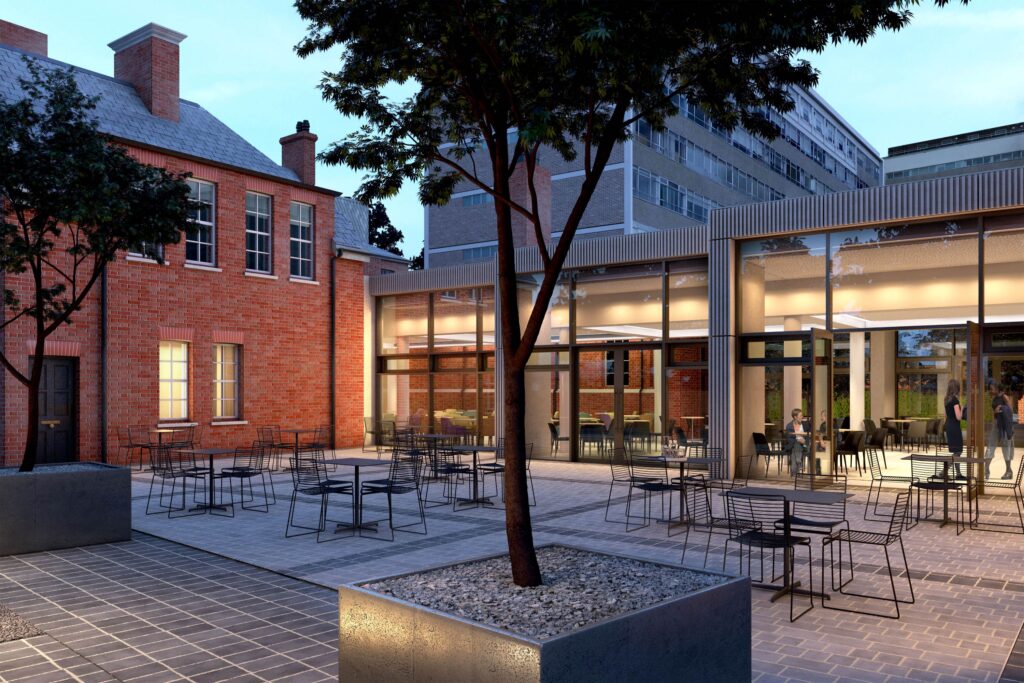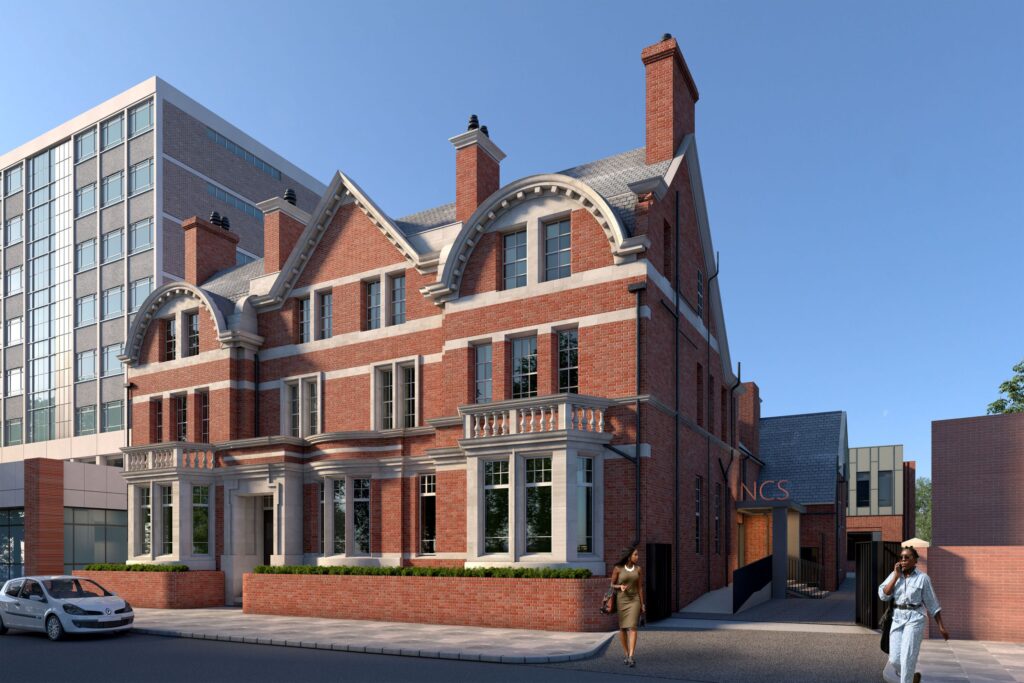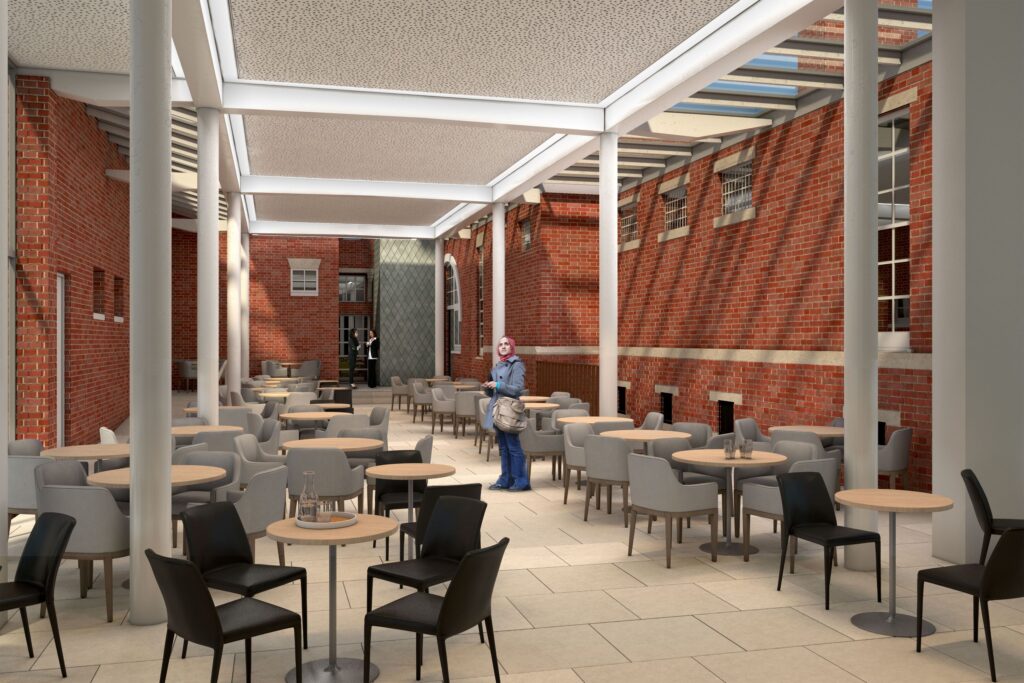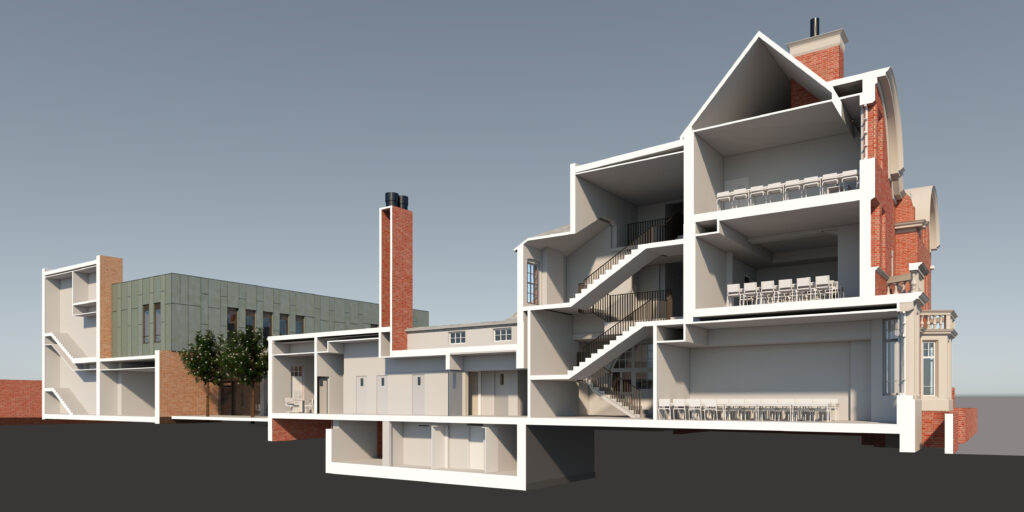People Spotlight: Meet Sarah Crowley
Our People Spotlight series gives you an inside look at our technical experts around the world. This week, we are highlighting a building surveyor from our Buildings and Places business line in Leeds and providing you with insight into their inspiration and work as the lead for the schools sector in the UK and Ireland.
Sarah Crowley is the client account manager for the UK Department of Education and, as the leader of AECOM’s School Technical Advisory team, advises internal teams and clients on best practices for delivering new and refurbishment school projects.
Tell us about what inspired you to join the industry
I remember drawing a house when I was a child and it was one with a typical window and door on the ground floor, two windows upstairs and smoke coming out of the chimney. As I drew on the brickwork, stacked one on top of the other, an adult explained to me how and why bricks are coursed and not stacked. It was this moment that sparked my interest in the built environment.
Growing up, I aspired to be an architect. However, my drawing skills didn’t improve from that six-year-old drawing of a house, so studying architecture wasn’t an option. Instead, I studied architectural technology, and ultimately, I realised my interest was for existing buildings. I decided to pursue a second degree in building surveying and was elected to the Royal Institution of Chartered Surveyors in 2007.
When I started my career, there were very few women in construction, particularly in building surveying. This often resulted in gender discrimination, both in career progression and derogatory comments due to being the only woman on site. Thankfully, this is changing both on site and in the workplace. I joined AECOM as an associate director eight years ago and have been fully supported in my career progression to director and school sector lead and balancing being a mum.
Growing up, I aspired to be an architect. However, my drawing skills didn’t improve from that six-year-old drawing of a house, so studying architecture wasn’t an option. Instead, I studied architectural technology and ultimately, I realised my interest was for existing buildings.”
What is your favourite AECOM project that you’ve worked on and why?
Although I have been lucky enough to work on several great school projects during my time at AECOM, I have a fond memory of a particular project that showcased the value of teamwork, not only in terms of project outcome but also team morale and wellbeing.
In early 2020, AECOM was appointed to undertake the RIBA Stage 3 developed design for the UK Department for Education on behalf of Newham Collegiate. The project consisted of the remodelling of two historic listed buildings and the creation of a new teaching wing for the Newham Collegiate Sixth Form Centre. Receiving planning consent for this project was expected to be challenging, so we appointed a local architect who had previous experience with this particular local authority to work alongside our internal multi-disciplinary teams.
Unfortunately, COVID-19 had other plans, and we had to use technology to deliver a fully coordinated Stage 3 design without ever meeting as a team in person. I loved the team spirit. So many different disciplines came together, leaving their egos at the door, to develop the best solutions under new and difficult working conditions. The coordination of mechanical and electrical design was a particular challenge, especially considering the space constraints and requirement for mechanical ventilation over natural. Our structural engineers worked closely with the architects to ensure the maximum use of space while maintaining the structural integrity of the building, and our cost manager challenged each design decision to ensure the project returned value for money.
What made this project special was how the team supported each other through this unprecedented time. Each meeting was an opportunity to check in on each other’s emotional well-being, to share a funny story or a frustration. It helped to break down some of the social isolation that working from home and social bubbles had created.
For me, this project demonstrated teamwork at its absolute best.
In early 2020, AECOM was appointed to undertake the RIBA Stage 3 developed design for the UK Department for Education on behalf of Newham Collegiate. Due to COVID-19, we had to use technology to deliver a fully coordinated Stage 3 design without ever meeting as a team in person. I loved the team spirit. So many different disciplines came together, leaving their egos at the door, to develop the best solutions under new and difficult working conditions.”
Tell us a story of how your work positively impacted the community.
Currently, our school teams are developing two design guides for delivering new mainstream schools and Special Educational Needs (SEN) schools for the Ministry of Education in the Kingdom of Saudi Arabia (KSA), which will positively impact the delivery of schools across the region for generations to come. I am particularly excited about developing the new SEN schools design guide, as it will help support KSA’s vision of providing equal opportunities to educate and care for people with special needs — allowing them to develop skills to reach their full potential.
In the UK, we have seen central government, private companies, and charities research and develop a set of best practice design standards. It’s extremely rewarding to contribute to this collective effort. We know how great buildings complement the efforts of staff, enabling students to experience the best learning environment and ensuring the most vulnerable have access to education.
I am particularly excited about developing the new Special Educational Needs schools design guide, as it will help support KSA’s vision of providing equal opportunities to educate and care for people with special needs — allowing them to develop skills to reach their full potential.”
Share a piece of career advice
Your success will depend on your resilience to challenges and your willingness to work hard and develop new skills despite setbacks.
Rather than becoming discouraged, accept the emotions that came with a setback and explore why things went wrong and how you can improve in the future. Career progression is founded on hard work but underpinned by self-belief rather than entitlement. If you can demonstrate your capabilities but are not recognised for them, do not be afraid to move on.
Learn from a mentor or senior colleagues — chances are they have also experienced the frustration, setbacks or imposter syndrome you are experiencing.










